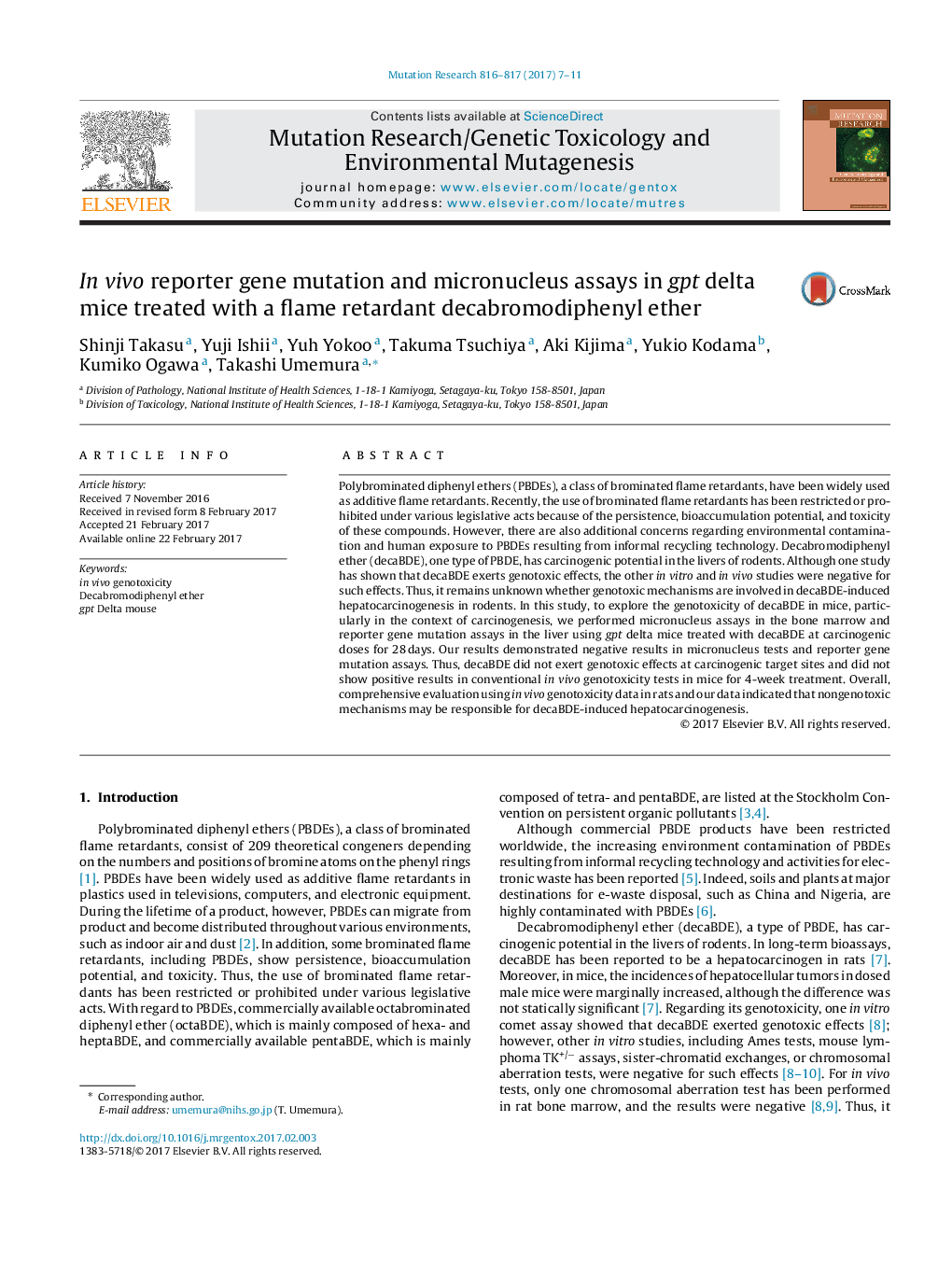| کد مقاله | کد نشریه | سال انتشار | مقاله انگلیسی | نسخه تمام متن |
|---|---|---|---|---|
| 5528804 | 1548554 | 2017 | 5 صفحه PDF | دانلود رایگان |

- To clarify the underlying mechanisms of decaBDE-induced hepatocarcinogenicity, in vivo genotoxicity of decaBDE in mice was examined.
- Micronucleus assays in the bone marrow showed negative results.
- Reporter genes mutation assay showed no significant increases of mutant frequencies in the liver.
- The overall data suggest that genotoxic mechanisms may not be involved in decaBDE-induced hepatocarcinogenesis in rodents.
Polybrominated diphenyl ethers (PBDEs), a class of brominated flame retardants, have been widely used as additive flame retardants. Recently, the use of brominated flame retardants has been restricted or prohibited under various legislative acts because of the persistence, bioaccumulation potential, and toxicity of these compounds. However, there are also additional concerns regarding environmental contamination and human exposure to PBDEs resulting from informal recycling technology. Decabromodiphenyl ether (decaBDE), one type of PBDE, has carcinogenic potential in the livers of rodents. Although one study has shown that decaBDE exerts genotoxic effects, the other in vitro and in vivo studies were negative for such effects. Thus, it remains unknown whether genotoxic mechanisms are involved in decaBDE-induced hepatocarcinogenesis in rodents. In this study, to explore the genotoxicity of decaBDE in mice, particularly in the context of carcinogenesis, we performed micronucleus assays in the bone marrow and reporter gene mutation assays in the liver using gpt delta mice treated with decaBDE at carcinogenic doses for 28Â days. Our results demonstrated negative results in micronucleus tests and reporter gene mutation assays. Thus, decaBDE did not exert genotoxic effects at carcinogenic target sites and did not show positive results in conventional in vivo genotoxicity tests in mice for 4-week treatment. Overall, comprehensive evaluation using in vivo genotoxicity data in rats and our data indicated that nongenotoxic mechanisms may be responsible for decaBDE-induced hepatocarcinogenesis.
Journal: Mutation Research/Genetic Toxicology and Environmental Mutagenesis - Volumes 816â817, April 2017, Pages 7-11